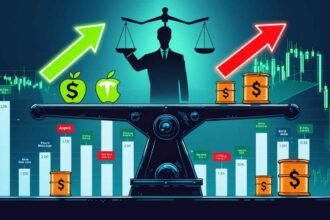The U.S. Securities and Exchange Commission (SEC) initiates fresh ground-breaking operations. The SEC’s newly formed crypto task force conducted its initial public meeting on March 21, 2025, as it assembled influential figures to address the fundamental question regarding the connection between digital assets and securities laws. This roundtable event featuring Republican SEC Commissioner Hester Peirce represents a critical juncture because the Trump administration wants a comprehensive overhaul of crypto regulations. The commission’s transformation of its crypto regulation stance started with this fresh beginning, just like Peirce described it “Spring indicates new starts.” The industry audience is paying attention to this statement.
The speakers at this event included John Reed Stark, who served as the lead of Internet Enforcement at the SEC, Miles Jennings, who occupies the general counsel position at a16z, and Troy Paredes, who formerly worked as an SEC Commissioner. Their mission? Security regulators aim to define the regulatory classification for crypto tokens by deciding whether existing stock regulations will apply or if they demand an entirely new framework. Such debate has smoldered for multiple years until Trump’s cryptocurrency-friendly position enhanced the controversy.
Crypto vs. Securities: Clash of Definitions
One central topic at the roundtable centers on whether Ethereum tokens fall under the category of securities or commodities or represent a different financial entity. Security status for digital assets raises important questions about the complex nature of cryptocurrency because the traditional mandatory SEC registration requirements would burden the fast-paced decentralized digital asset parameters. Jennings from a16z effectively argued to the SEC that they should remain technology-independent in their evaluation of Ethereum compared to Apple share ownership. Before attempting to force crypto into traditional stock market norms, the innovation risks involved should be properly considered.
The discussion extends beyond abstract thinking about this issue. During the Biden-era administration the Securities and Exchange Commission pursued aggressive legal action against Coinbase and Kraken by charging them with avoiding securities regulations. The SEC lawsuits caused major problems for Coinbase as the company pursued its Deribit acquisition to enter the derivatives market. The new administration under Trump has assumed control of the agency, delaying or withdrawing former investigations targeted at cryptocurrency businesses. The new leadership at the task force has obtained enough flexibility to start creating new rules.
New Rules or Looser Rules? The Debate Heats Up
Several groups resist the movement toward crypto-friendly decision-making. SEC Commissioner Caroline Crenshaw raised concerns about creating isolated cryptocurrency regulations because she believed they would prove detrimental. She highlighted risks connected with modifying laws for the sake of a single product category since this approach creates vulnerabilities in investor security and affects multiple markets. Managing the unpredictable transformations of crypto proves challenging to regulate because striking the required balance becomes difficult.
Meanwhile, Trump’s been busy. The president executed an executive order to create a strategic crypto reserve while holding industry executives for discussions at the White House this past month. The combination of the upcoming April 2 House committee hearing on the stablecoin bill and the action I discussed in my last article means the U.S. is ramping up to become a leading global crypto nation. The roundtable of the task force represents a major element as the United States aims to become a crypto powerhouse. The task force moves toward creating a regulatory approach that provides room to crypto while maintaining existing guidelines. In today’s Bitcoin market, we question the existence of a million-dollar prize while the Bitcoin equivalent poses the main economic inquiry.
What’s next? The task force remains at work after this important event marked the beginning. Since Trump’s team continues to push aggressively into the crypto world, I will focus on the upcoming stablecoin legislation. The SEC stands at a point where its previous methods have been discarded to give rise to a new regulatory approach.









